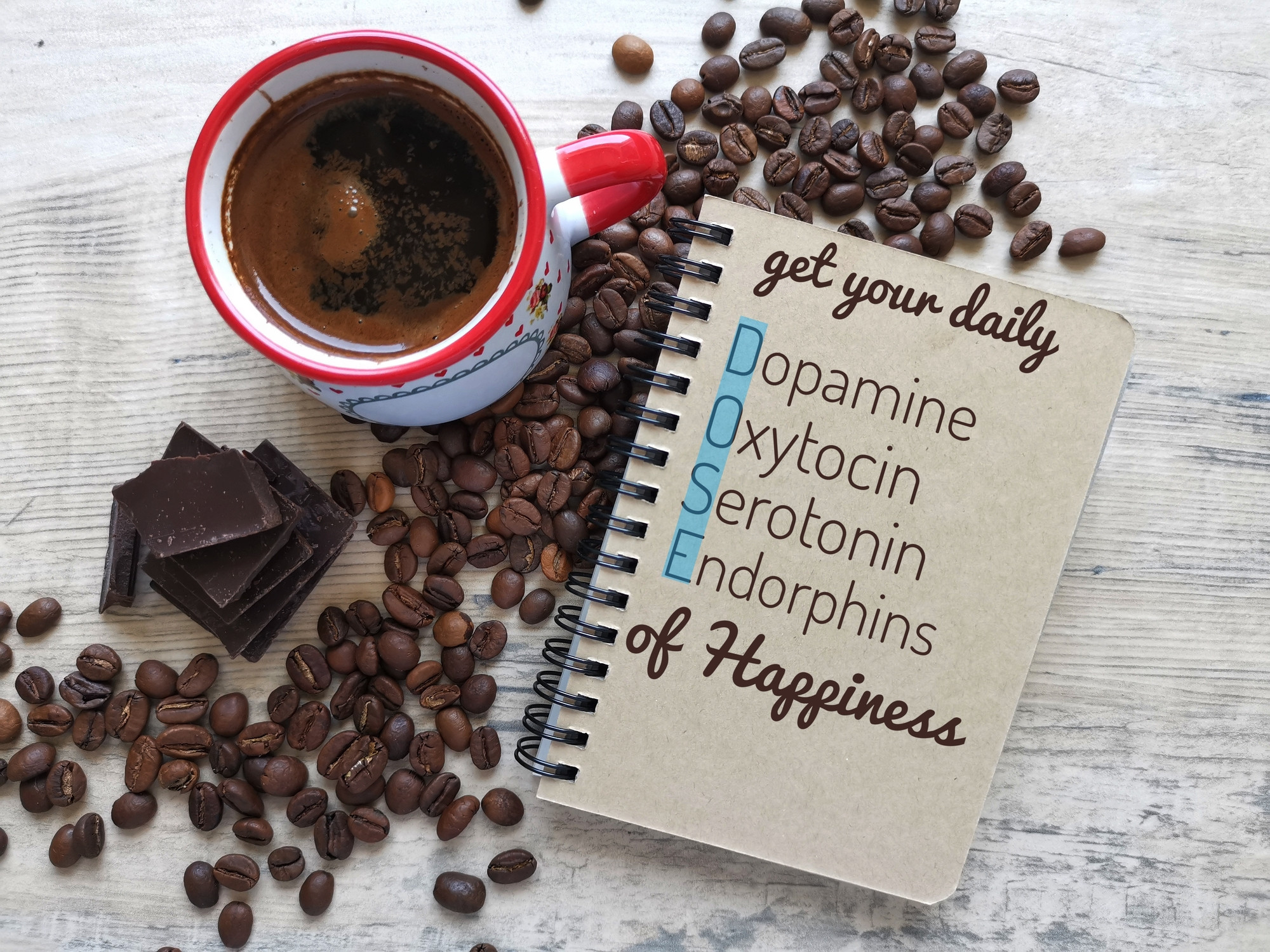Health, Mental Health, Mental Toughness, Strength And Conditioning
Welcome and thanks for visiting...

Boosting Your Happiness: The Power of Happy Hormones

In today's fast-paced and stress-filled world, finding happiness can seem elusive. But what if there's a way to boost your happiness levels naturally from within? Enter the world of happy hormones—neurotransmitters and chemicals in our brain that play a significant role in our emotions and overall well-being. In this article, we'll explore the power of happy hormones and how they can enhance your daily happiness.
Serotonin, known as the "feel-good" hormone, is linked to feelings of joy, contentment, and relaxation. Dopamine, often referred to as the "reward" hormone, gives us a sense of pleasure and motivation. Endorphins, the "natural painkillers," are released during exercise, laughter, and other exhilarating activities, leaving us feeling euphoric. Oxytocin, the "love" or "bonding" hormone, enhances our sense of connection and trust in social relationships.
By understanding how these happy hormones work and incorporating strategies to boost their production, you can take control of your happiness levels. From practicing gratitude and engaging in activities that bring you joy to nurturing relationships and adopting a healthy lifestyle, there are various ways to activate and maximize the power of your happy hormones.
Get ready to embark on a journey toward greater happiness as we unlock the secrets of these incredible neurotransmitters.
Understanding the Different Types of Happy Hormones

Serotonin: The "Feel-Good" Hormone
Serotonin is primarily produced in the brain and gastrointestinal system. It stabilizes mood, improves sleep quality, and enhances feelings of well-being and contentment. Serotonin also plays a vital role in regulating appetite, digestion, and social behavior.
Dopamine: The "Reward" Hormone
Dopamine is released when we experience something pleasurable or accomplish a goal. It's closely linked to motivation, pleasure, and feelings of satisfaction. Dopamine also influences decision-making and learning processes through the brain's reward and reinforcement systems.
Endorphins: The "Natural Painkillers"
Endorphins are released during physical activity, laughter, or other enjoyable experiences. They produce a sense of euphoria, reduce pain, and promote a positive mood. Endorphins also help alleviate stress and anxiety, contributing to overall well-being.
Oxytocin: The "Love" Hormone
Oxytocin is released during social interactions, physical touch, and emotional bonding. It enhances feelings of trust, empathy, and connection, playing a crucial role in building and maintaining healthy relationships.
The Role of Happy Hormones in Happiness and Well-Being
Happy hormones create a delicate balance influencing our emotions, physical health, and cognitive function. Balanced serotonin levels contribute to mood stability, contentment, and stress management. High dopamine levels enhance motivation and pleasure. Endorphins provide natural pain relief and stress reduction. Oxytocin fosters social bonds and emotional connections.
Factors Influencing the Production of Happy Hormones
Lifestyle and Daily Habits
Diet, exercise, sleep, and stress management significantly impact serotonin, dopamine, endorphins, and oxytocin levels. A diet rich in tryptophan-containing foods (like salmon, eggs, and nuts) can boost serotonin, while regular physical activity stimulates endorphins.
Stress and Trauma
Chronic stress depletes serotonin and dopamine, leading to anxiety and depression. Engaging in stress-reducing activities like meditation or spending time in nature helps restore hormone balance.
Social Interactions
Positive social interactions, physical touch, and emotional bonding increase oxytocin levels, enhancing trust and connection.
Genetics and Individual Differences
Genetic predispositions, age, gender, and hormonal changes can influence neurotransmitter levels and overall mood.
Natural Ways to Boost Happy Hormones

Exercise and Physical Activity
Regular exercise, such as aerobic activities, strength training, or yoga, stimulates endorphins, serotonin, and dopamine, alleviating stress and improving mood.
Exposure to Sunlight and Nature
Spending time outdoors increases serotonin and vitamin D production, which is essential for overall health and happiness.
Practicing Gratitude and Mindfulness
Gratitude practices, like keeping a gratitude journal or expressing appreciation, boost serotonin and dopamine. Mindfulness practices reduce stress and promote hormone release.
Consuming Mood-Boosting Foods
Foods like dark chocolate, nuts, seeds, and fermented foods support hormone production, providing a natural mood boost.
Nurturing Social Connections
Meaningful interactions and a sense of belonging trigger oxytocin, enhancing happiness and well-being.
Engaging in Enjoyable Activities
Hobbies, creative pursuits, and social activities stimulate dopamine and endorphins, elevating mood and well-being.
The Impact of Happy Hormones on Mental Health
Balanced happy hormones profoundly impact mental health. Serotonin stabilizes mood and improves sleep quality. Dopamine enhances motivation and pleasure. Endorphins reduce pain and stress. Oxytocin fosters trust and emotional connections, improving overall mental health.
The Connection Between Happy Hormones and Physical Health
Happy hormones influence emotional well-being and physical health. Serotonin aids digestion and sleep. Dopamine supports motor function and coordination. Endorphins alleviate pain and regulate the immune system. Oxytocin improves cardiovascular health and strengthens the immune system.
Harnessing the Power of Happy Hormones for a Happier Life
In today's fast-paced world, happy hormones offer a natural approach to greater happiness and well-being. Understanding these hormones' roles and factors influencing their production allows proactive steps to harness their potential. Engaging in exercise, practicing gratitude, nurturing social connections, and incorporating mindfulness into daily life can profoundly impact mental health, physical well-being, and overall quality of life.
Embrace the strategies and insights shared in this article to embark on a journey toward greater happiness, resilience, and a deeper appreciation for the incredible power of your neurotransmitters. Unlock the secrets of happy hormones and unleash the boundless potential for joy within you.








